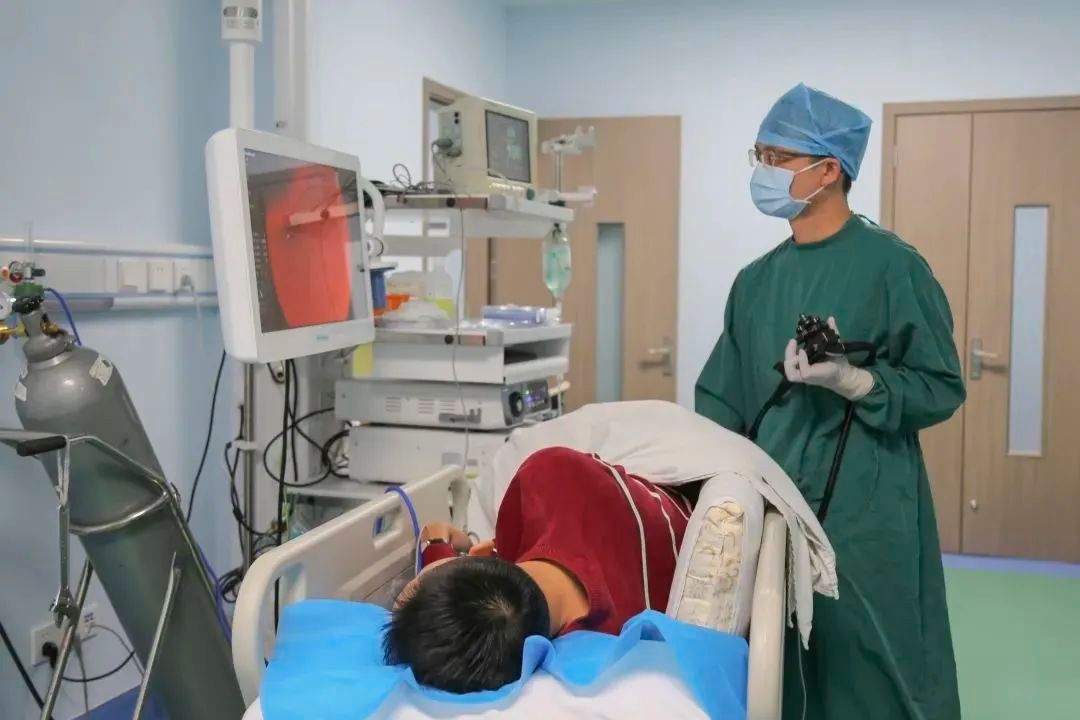A few days ago, Mr. Xiao (pseudonym), a 24-year-old man, went to Dongcheng Hospital for treatment and was admitted to the hospital because of bright red bloody stools and anemia.
In the beginning, due to Mr. Xiao’s special situation, he could not communicate with the doctor normally. Therefore, in the absence of a detailed medical history, the gastroenterology team had to conduct a physical examination first. Upon examination, no other special changes were found except that the opening of the anus was relatively loose. Subsequently, the treatment team implemented conventional conservative treatment for Mr. Xiao.
However, on the second day of hospitalization, the nursing staff found that Mr. Xiao did not come out after going to the toilet for a long time. When he went to the toilet to check, he found that Mr. Xiao had symptoms of “prolapse of the anus”.
After learning about the situation, Dr. Su Jingbo considered that the patient had blood in the stool and rectal mucosal prolapse, so he decided to perform a colonoscopy on the patient. Afterwards, the doctor of the tube bed cleaned Mr. Xiao’s intestines and prepared for a painless colonoscopy.

It was found that Mr. Xiao had several parasites in the minister of ileo blindness. Dr. Su Jingbo judged that these parasites were whipworms, and immediately took out the parasites under a colonoscopy.
Mr. Xiao not only had diarrhea, blood in the stool, anemia, but also had prolapse of the anus. Now he also found whipworm. What is going on?
With the in-depth examination, Mr. Xiao’s cause was finally figured out: long-term whipworm infection caused rectal mucosal prolapse, repeated prolapse or whipworm infection caused rectal ulcer bleeding, and finally caused anemia. After determining the cause, the gastroenterology team can finally choose a precise treatment plan and conduct anti-insect treatment for Mr. Xiao.
/Know more D/
What is Trichuris?
Trichuris disease is an intestinal parasitic disease caused by the parasitic nematode C. trichomoniasis in the cecum, appendix and ascending colon of the human body.
The adult is dark red when alive, gray-white after death, looks like a whip, the front end is slender, accounting for about 3/5 of the body length, and the rear end is obviously thick. Humans can become infected by eating food contaminated with soil containing the eggs or by bringing the eggs into the mouth after touching the soil with the eggs. Due to the improvement of people’s living standards, the incidence of whipworm disease has dropped significantly.
What are the clinical symptoms of whipworm disease?
Mild and moderate infection may be asymptomatic; severe infection may have diarrhea, blood in the stool, tenesmus, rectal prolapse, anemia and malnutrition.
How can whipworm disease be prevented?
First, ensure an adequate sanitary environment, especially sanitary toilet facilities.
Second, maintain good personal hygiene, such as washing hands before touching food, not eating unwashed fruits and vegetables, etc.
Text: Zhou Qiantong Photo: Interviewed by the hospital Editor: Wang Baoguang